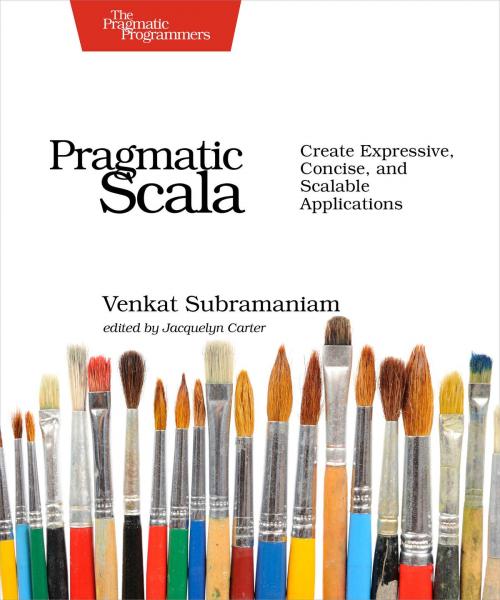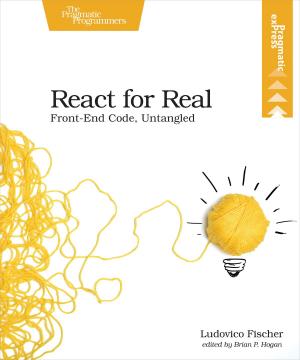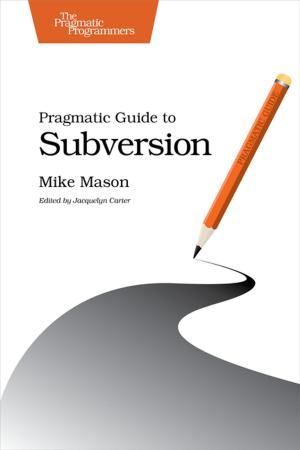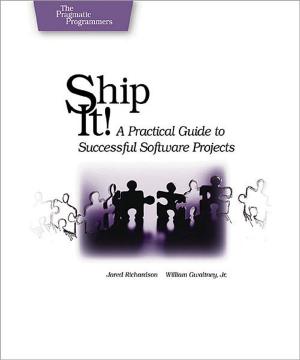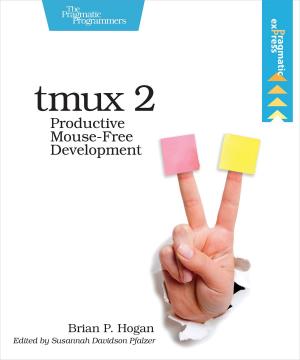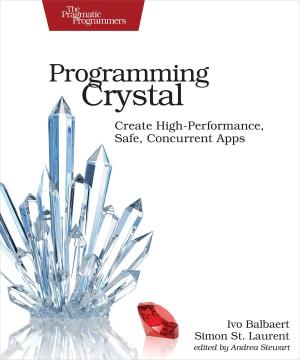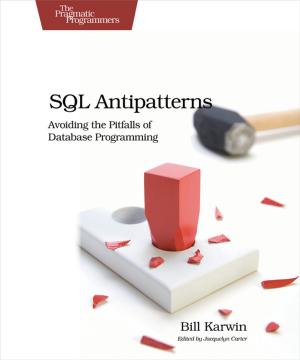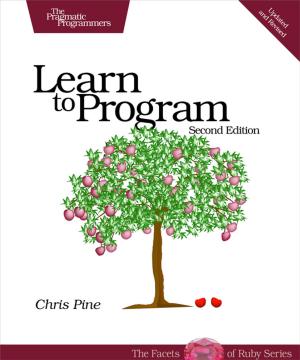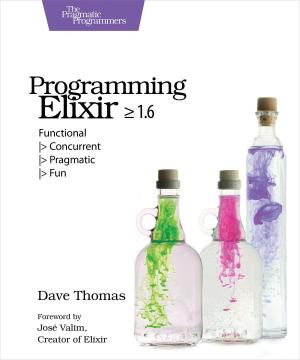Pragmatic Scala
Create Expressive, Concise, and Scalable Applications
Nonfiction, Computers, Internet, Web Development, Java, Programming, Programming Languages| Author: | Venkat Subramaniam | ISBN: | 9781680504200 |
| Publisher: | Pragmatic Bookshelf | Publication: | September 10, 2015 |
| Imprint: | Pragmatic Bookshelf | Language: | English |
| Author: | Venkat Subramaniam |
| ISBN: | 9781680504200 |
| Publisher: | Pragmatic Bookshelf |
| Publication: | September 10, 2015 |
| Imprint: | Pragmatic Bookshelf |
| Language: | English |
Our industry is moving toward functional programming, but your object-oriented experience is still valuable. Scala combines the power of OO and functional programming, and Pragmatic Scala shows you how to work effectively with both. Updated to Scala 2.11, with in-depth coverage of new features such as Akka actors, parallel collections, and tail call optimization, this book will show you how to create stellar applications.
The first edition of this book was released as Programming Scala.
Our industry is moving toward functional programming, but your object-oriented experience is still valuable. Scala combines the power of OO and functional programming, and Pragmatic Scala shows you how to work effectively with both. Updated to Scala 2.11, with in-depth coverage of new features such as Akka actors, parallel collections, and tail call optimization, this book will show you how to create stellar applications.
This thorough introduction to Scala will get you coding in this powerful language right away. You'll start from the familiar ground of Java and, with easy-to-follow examples, you'll learn how to create highly concise and expressive applications with Scala. You'll find out when and how to mix both imperative and functional style, and how to use parallel collections and Akka actors to create high-performance concurrent applications that effectively use multicore processors.
Scala has evolved since the first edition of this book, and Pragmatic Scala is a significant update. We've revised each chapter, and added three new chapters and six new sections to explore the new features in Scala. You'll learn how to:
- Safely manage concurrency with parallel collections and Akka actors
- Create expressive readable code with value classes and improved implicit conversions
- Create strings from data with no sweat using string interpolation
- Create domain-specific languages
- Optimize your recursions with tail call optimization
Whether you're interested in creating concise, robust single-threaded applications or highly expressive, thread-safe concurrent programs, this book has you covered.
What You Need:
The Scala compiler (2.x) and the JDK are required to make use of the concepts and the examples in this book.
Our industry is moving toward functional programming, but your object-oriented experience is still valuable. Scala combines the power of OO and functional programming, and Pragmatic Scala shows you how to work effectively with both. Updated to Scala 2.11, with in-depth coverage of new features such as Akka actors, parallel collections, and tail call optimization, this book will show you how to create stellar applications.
The first edition of this book was released as Programming Scala.
Our industry is moving toward functional programming, but your object-oriented experience is still valuable. Scala combines the power of OO and functional programming, and Pragmatic Scala shows you how to work effectively with both. Updated to Scala 2.11, with in-depth coverage of new features such as Akka actors, parallel collections, and tail call optimization, this book will show you how to create stellar applications.
This thorough introduction to Scala will get you coding in this powerful language right away. You'll start from the familiar ground of Java and, with easy-to-follow examples, you'll learn how to create highly concise and expressive applications with Scala. You'll find out when and how to mix both imperative and functional style, and how to use parallel collections and Akka actors to create high-performance concurrent applications that effectively use multicore processors.
Scala has evolved since the first edition of this book, and Pragmatic Scala is a significant update. We've revised each chapter, and added three new chapters and six new sections to explore the new features in Scala. You'll learn how to:
- Safely manage concurrency with parallel collections and Akka actors
- Create expressive readable code with value classes and improved implicit conversions
- Create strings from data with no sweat using string interpolation
- Create domain-specific languages
- Optimize your recursions with tail call optimization
Whether you're interested in creating concise, robust single-threaded applications or highly expressive, thread-safe concurrent programs, this book has you covered.
What You Need:
The Scala compiler (2.x) and the JDK are required to make use of the concepts and the examples in this book.
